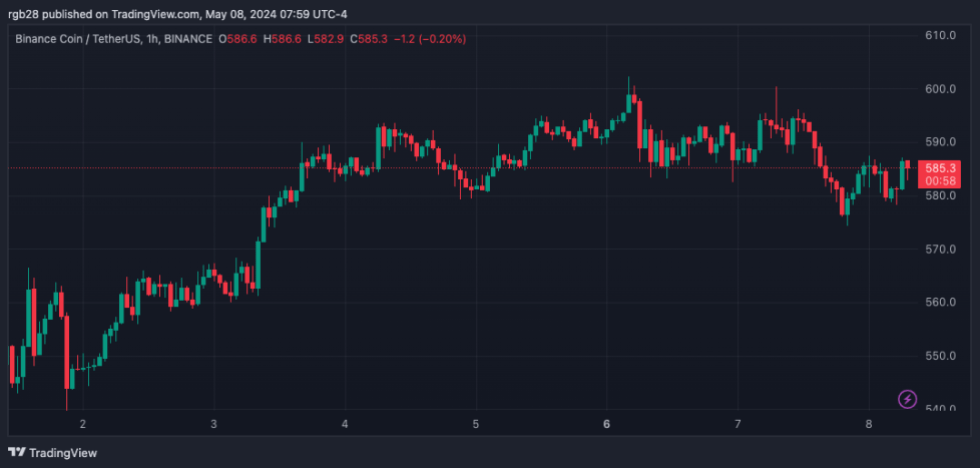Binance CEO Denounces Nigerian Officials’ Secret Settlement
Binance CEO Richard Teng recently denounced the Nigerian authorities’ abuse of power and mistreatment of the crypto exchange executives, including still-detained Tigran Gambaryan.
Teng considers it’s time to highlight the implications of the saga between the crypto exchange and the Nigerian regulators on behalf of the business community.
Binance’s Point Of View
Since the arrest of Gambaryan and the Head of Binance Africa, Nadeem Anjarwalla, the tension between the crypto exchange and Nigerian authorities has increased. On Tuesday, Richard Teng shared his concerns about the country’s crackdown on the platform and its executives.
In a Binance Blog post, the CEO discussed the timeline of the Binance vs Nigeria saga from the exchange’s point of view. Teng ” provided the facts so that the global community’s perception may not be distorted unfairly.”
My friend and colleague, Tigran Gambaryan, has been unlawfully detained by the Nigerian government for more than 70 days. We’re tirelessly working to #BringTigranHome.
For the first time publicly, I’m sharing the full context of this situation here. ⤵️https://t.co/Rg3DEYJZgW
— Richard Teng (@_RichardTeng) May 7, 2024
According to the detailed timeline, this saga began in 2022, when Nigeria’s Securities and Exchange Commission (SEC) published new regulations requiring crypto exchanges operating in the country to obtain SEC permits and comply with specific requirements.
The exchange claims to have “proactively reached out” several times seeking practical guidance. However, the Nigerian regulator allegedly did not respond to Binance’s questions. Teng argues that “no Virtual Asset Service Provider (VASP) has been licensed under the new regulations to this date.”
In early January 2024, Binance employees finally met with the Nigerian Financial Intelligence Unit (NFIU) and agreed to share a Memorandum of Understanding (MoU). The MoU would set out the proposed terms and conditions for sharing anti-money laundering (AML)-related information.
The exchange representatives went through other meetings, including one with the House Committee on Financial Crimes (HCFC) members. Teng claims that as the Binance employees left the meeting, they were approached by “unknown persons who suggested to them to make a payment in settlement of the allegations.”
However, the CEO alleges that the team was not informed of the accusations’ details despite repeatedly requesting them.
Moreover, Binance’s local counsel was presented with a “demand for a significant payment in cryptocurrency” within the next 48 hours. The “settlement” would “make the issues go away.”
As a result, Binance representatives departed the country and declined the payment demand. The exchange considered the payment a non-legitimate settlement offer and clarified through its local counsel that it would engage in settlement negotiations under a set of conditions.
As of this writing, Nigeria has denied Binance’s claim of bribery.
According to Bloomberg, Binance CEO Richard Teng accused Nigerian officials of demanding a $150 million cryptocurrency payment to resolve a criminal investigation facing the company. The Nigerian government has denied Binance’s accusations that its officials solicited bribes.…
— Wu Blockchain (@WuBlockchain) May 8, 2024
Is Nigeria’s Crackdown Setting A Dangerous Precedent?
In February, the exchange’s local advisors suggested having a reunion with the director of the Office of National Security Advisor (ONSA). The meeting was scheduled for February 26, and the security of the exchanges’ representatives was assured.
Nonetheless, it was during this reunion that Gambaryan and Anjarwalla were taken “as guests” by Nigerian authorities and “were accused personally of holding responsibility for the state of the naira and the overall economy, and allegations of terrorist financing and money laundering.”
In the post, the CEO shared Gambaryan’s efforts to combat finance crime throughout his career. Teng highlighted that the now-detained executive has assisted global law enforcement in freezing and seizing more than $2 billion worth of assets with his financial Crime Compliance Team just in 2022 and 2023.
Despite knowing about the risks and the growing tension, Gambaryan traveled to Nigeria as a representative of Binance. However, the executive didn’t go as a “decision-maker, nor a negotiator.” He went “as a functional expert in financial crime and capacity building in policy discussions,” as Teng clarifies.
Per the post, Gambaryan’s situation “went from bad to worse” after Anjarwalla escaped from Nigerian custody at the end of March. The CEO alleges that during a bail hearing on April 25, the EFCC’s prosecutor stated that since “The 1st defendant [Binance] is operating virtually. The only thing we have to hold on to is this defendant [Tigran].”
According to Teng, the Nigerian government is sending a clear message: an innocent employee “must be” detained and placed in a “dangerous prison in order to control Binance.”
Ultimately, the CEO considers inviting mid-level employees under pretenses only to detain them “has set a dangerous new precedent for all companies worldwide.”

Binance Coin (BNB) is trading at $585.3 in the weekly chart. Source: BNBUSDT on TradingView
Featured Image from Unsplash.com, Chart from TradingView.com




